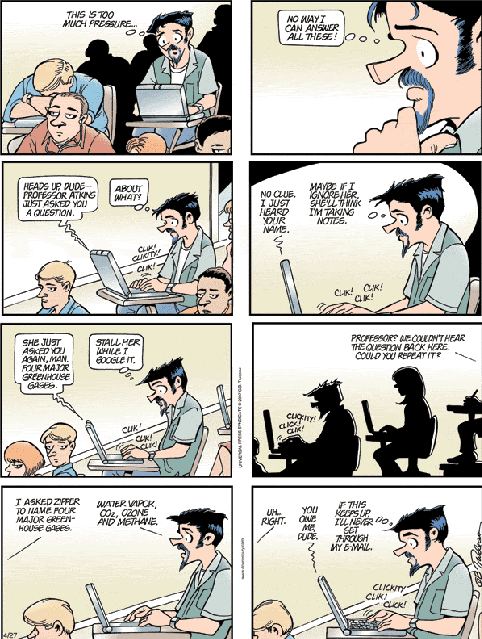We're now seeing the advocacy of what might be called "comparative radicalism" among various factions within the Democratic base.
Libby Spencer, for example, a known revolutionary socialist among the leftosphere, is cheering Hillary's radicalism as if she was a bona fide '60s-era bombthrower:
Hillary's associations are much more damning. Unlike Obama, who was just a kid when the big stuff went down, Hillary was there and an active participant.Ms. Libby seems to be minimizing Obama's extremely close relationship to domestic terrorist William Ayers (although Hill's no closet right-winger, to be sure).
But check out Raina Kelley's new piece on Obama over at Newsweek, "An Unfamiliar Narrative
With Barack Obama, It's About Much More Than Just Race":
If Obama seems alien, it may not be simply because he's the African-American presidential front runner, but because he's an African-American politician who doesn't flaunt his scars. Instead, he seems improbably blessed with good fortune and holds himself up as an example of the American Dream as reality. As he says again and again in speeches, only in this country would his story be possible.See also, Jeff Jacoby's piece on Obama's radical ties, "Obama's 'Mainstream' Friends."
The story of an African-American who rose to great heights despite the color of his skin and the humility of his beginnings resonated with white, blue-collar voters facing tough times in Wisconsin and Iowa. But in Ohio and Pennsylvania, his message fell short. Even taking into account the Rev. Jeremiah Wright Jr. uproar, which certainly fueled racial doubt among some whites, it seems unlikely that race alone explains the difference in states that are so similar in so many ways.
But other Obama missteps have helped to create the impression—fueled by the Clinton campaign and some in the press—that Obama is a fussy, stuffy elitist who speaks grandly about America but looks down on Americans from a higher, distant place. None was more ridiculous than the wholly manufactured flag-pin controversy. Yet why didn't Obama simply point out that neither Hillary, nor George Stephanopoulos, nor Charlie Gibson, nor most people in the Philadelphia debate audience was wearing pins, either? Did that mean their patriotism was in doubt? Other stumbles have proved harder to deal with. Michelle Obama's comments about only now finding pride in America and Obama's own "bitter" comments on guns and religion have allowed fellow millionaires Clinton and, more and more, McCain to paint him as out of touch with working folks.
Does John McCain really run out to Costco when there aren't a couple of dozen camera-toting reporters along for the ride? Does anyone really believe Hillary feels a deep kinship with deer hunters? Please. Yet it's working, in part because Obama does seem to lack that natural (or fakeable) humility that Americans require of successful presidential candidates (even George W. Bush summoned it, at least the first time around). Though hardly disdainful or haughty, Obama has a whiff of entitlement that can border on self-congratulation. He is the smartest kid in the class, and he knows it. This is a strange sight for those of us used to a black rhetoric that often falls back on slavery and segregation to ward off charges of pride. It was only last year, after all, that Al Sharpton huffed: "Ain't too many of us grew up in Hawaii and went to Harvard." Black voters are now united behind Obama, but many blue-collar white voters still don't quite seem to know what to make of him. When voters ask themselves the age-old polling-booth question "Is he like me?" they aren't necessarily wondering about his race.
